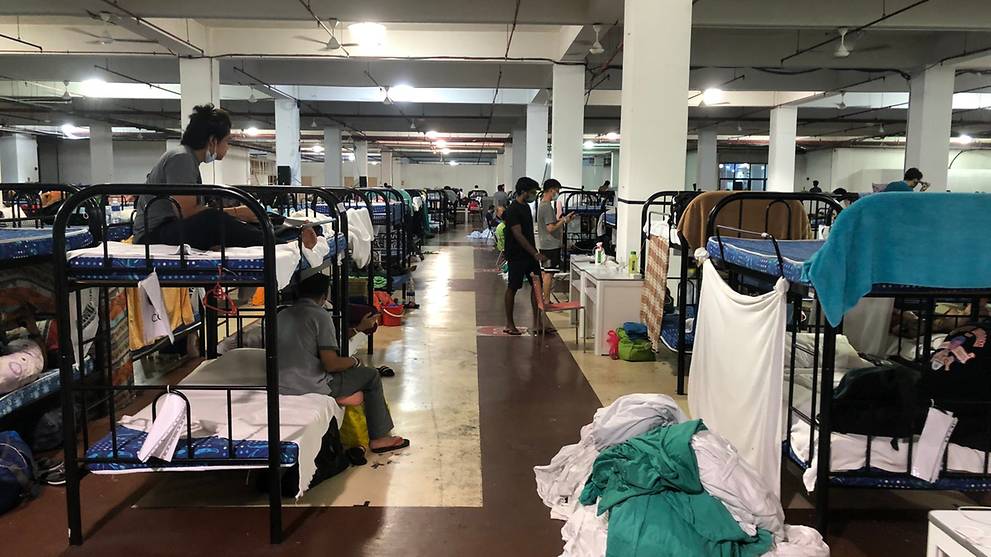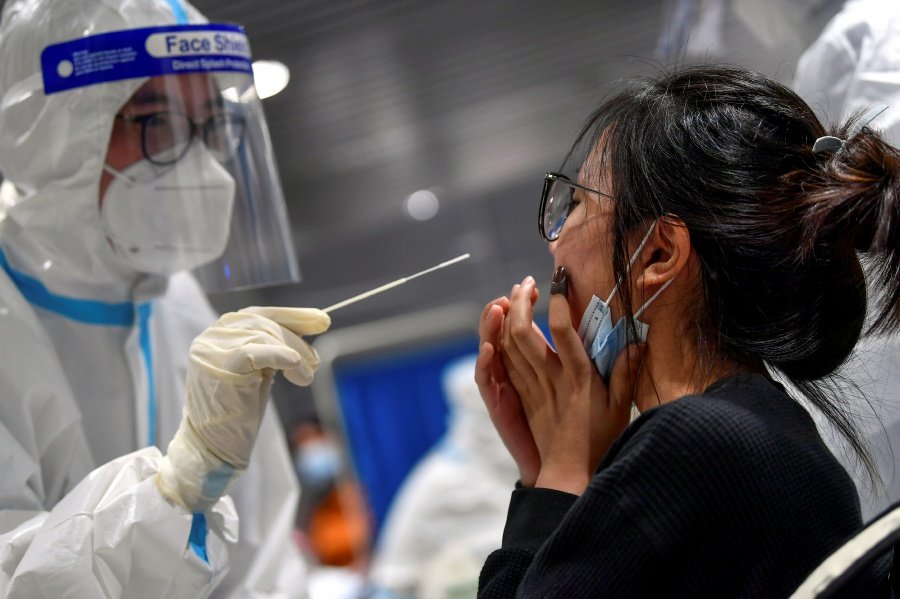Here's A Step-By-Step Guide On What To Do If You Test Positive For COVID-19
The Ministry of Health has updated several protocols.
The surge in cases have led to many drastic changes in Malaysia's healthcare system since the first lockdown in 2020
Hospitals running out of space and medical supplies depleting majorly are just some of the many battles that the nation has been facing.
To keep up with the rise in cases, several protocols have been updated by the Ministry of Health (MOH).
1. Wait for the District Health Office (PKD) to contact you
If PKD does not reach out to you within three to four days, contact your local Bilik Gerakan COVID-19 (Operations Room) or CAC (COVID-19 Assessment Centre).
If you did a COVID-19 swab test at home and it came out positive, immediately notify your CAC by phone or through the MySejahtera app Helpdesk.
According to the latest protocols listed by the Ministry of Health (MOH), you will be assessed on whether you meet the criteria for home quarantine, need to be admitted to low-risk COVID-19 quarantine and treatment centres, or need to be sent to the closest designated COVID-19 admitting hospital.
If you are to quarantine at home, MOH will issue you a Home Surveillance Order through your MySejahtera app. So make sure you have downloaded it and are registered on the app.
The Bilik Gerakan COVID-19 hotlines can be found here. Or if you want to reach out to the CAC instead, click here.
2. Regardless of whether or not you show symptoms, immediately isolate yourself from everyone who has tested negative or who has not been swabbed
This includes anyone you live with. Wear a mask at all times, wash your hands with soap and water often, and monitor your illness and symptoms (if any).
According to a recent tweet by the MOH, you should home quarantine for at least 10 days by isolating yourself from the rest of the household as much as possible.
3. Notify all those who were in close contact with you within the past 14 days, as they should undergo swab tests
Previously, close contacts with a COVID positive person were notified by the District Health Office (PKD) and MOH.
Earlier this year, Malaysiakini reported that due to the high surge in cases, the MOH will no longer swab test close contacts, except for those who show symptoms. In other words, unless a close contact is symptomatic, each person will need to do a swab test on their own.
The definition of a close contact of a confirmed case is a person who has been in direct contact (shook hands, for example) or have interacted (stood less than 1m away) with a person who was later confirmed as a COVID-19 patient.
These can include:
- People who live in the same household as you.
- Colleagues or classmates in close proximity with you at work or school.
- Public transport users who took the same bus or train as you.
- Healthcare workers not wearing appropriate Personal Protective Equipment (PPE) who you saw before you were diagnosed.
4. If you're required to be admitted to hospital, pack for at least a 10-day stay
Here's a checklist of things to bring to the hospital:
- Important documents (IC, list of medications)
- Handphone and charger
- Towel
- A bag of toiletries (soap, shampoo, conditioner, toothbrush, toothpaste)
- Clean clothes and underwear (hospital gowns are usually provided)
- Comfortable flip-flops
- Snacks and a water bottle
- If you are quite well, a lot of entertainment – tablet, books, earphones, puzzles, magazines
It was previously reported that the MOH's discharge criteria requires a patient to remain in hospital for at least 10 days.
5. If you're under home quarantine instead, monitor your illness daily
You will need to provide daily updates on your health status in the Home Assessment Tool (HAT) on the MySejahtera app. This is to ensure that the department is able to keep an eye on your condition.
If you're asymptomatic, continue to self-monitor and update the HAT daily. But if you begin to show symptoms or are in a high-risk category, immediately go to your nearest CAC.
'Happy' hypoxia is a condition where COVID-19 patients experience low oxygen levels in their blood but may not necessarily feel short of breath. To keep track of your oxygen levels, you can buy or borrow a pulse oximeter approved by the Medical Device Authority Malaysia (MDA).
However, if you experience difficulty breathing, loss of speech or mobility, or your condition is deteriorating rapidly, contact 999 immediately or go to your nearest hospital.
6. If you receive your vaccination appointment while still in recovery, you will need to reschedule your appointment by cancelling it via the MySejahtera app
A new appointment date will then be given within 30 days.
It goes without saying that you should not go for your vaccine appointment if you have tested COVID positive and have not been discharged or are waiting for your swab test results, as this will put everyone else at risk.

